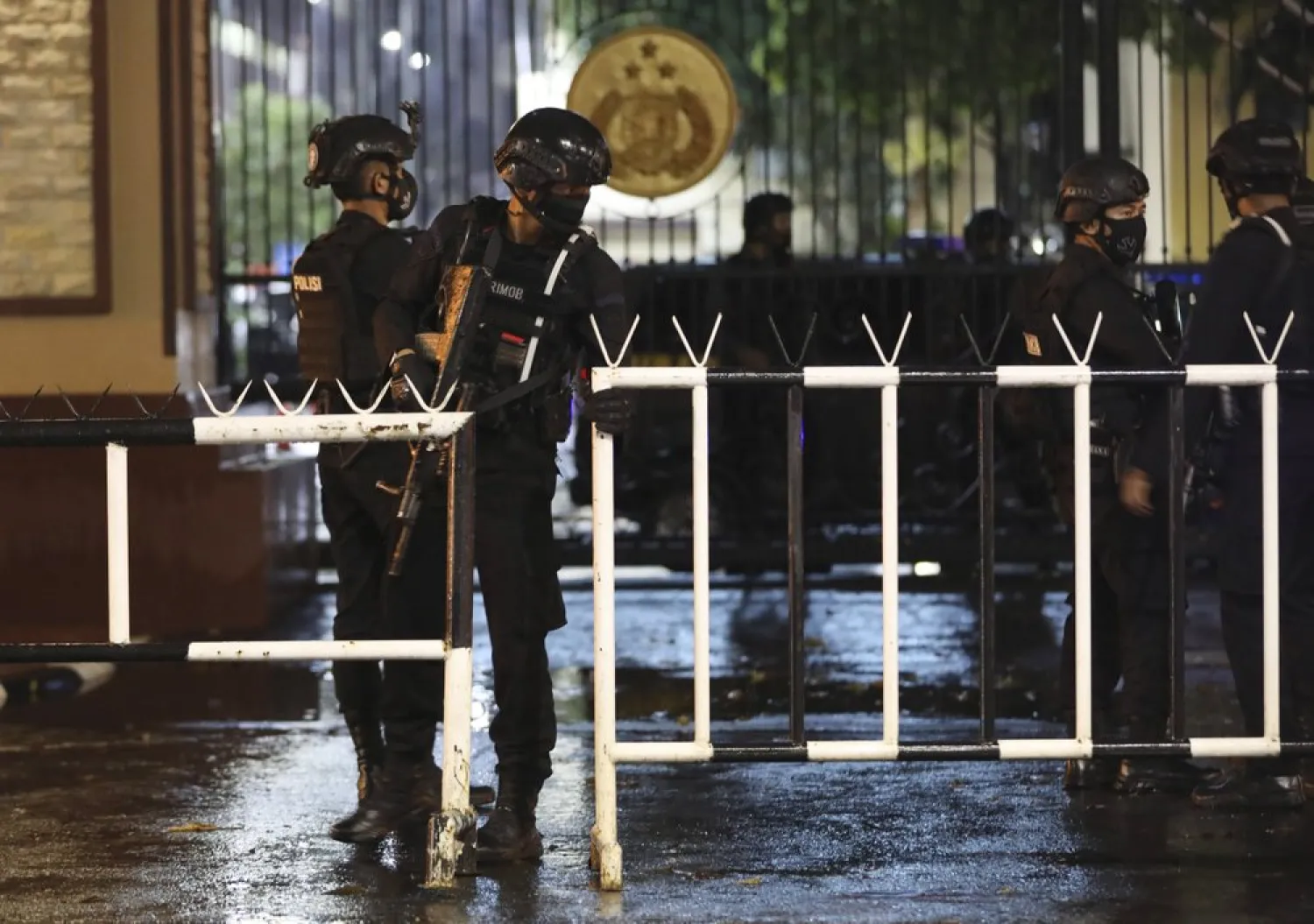A man blew himself up Wednesday at a police station on Indonesia’s main island of Java, killing an officer and wounding several people, officials said, in what appeared to be the latest in a string of suicide attacks blamed on militants.
The attacker entered the Astana Anyar police station with a motorcycle and detonated explosives as police were lining up for a morning assembly, said Bandung city Police Chief Aswin Sipayung.
An officer died, several were wounded and rushed to a hospital, said West Java Police spokesperson Ibrahim Tompo.
A video that circulated on social media showed body parts near the damaged lobby of the police station. Television reports showed white smoke billowing from the building and people running in panic following a loud bang.
Police were investigating if the attacker, who was not identified, had links to radical groups, The Associated Press said.
West Java Police Chief Suntana said the man brought two bombs but one apparently failed to explode and was defused.
Suntana, who goes by a single name, said that police found a paper taped to the perpetrator’s motorbike with the words, “Criminal code is the law of infidels, let’s fight the satanic law enforcers.”
Indonesia’s Parliament on Tuesday passed a new criminal code that bans sex outside of marriage and insulting the president and state institutions.
The current penal code is a Dutch colonial legacy. A revised code was poised for passage in 2019, but President Widodo urged lawmakers to delay a vote amid mounting public criticism that led to nationwide protests as opponents said it contained articles that discriminated against minorities and that the legislative process lacked transparency.
Indonesia has battled militants since bombings on the resort island of Bali in 2002 killed 202 people, mostly foreign tourists. Attacks aimed at foreigners have largely been replaced in recent years with smaller, less deadly strikes targeting the government, police and anti-terrorism forces and people who militants consider infidels.
A similar attack occurred in 2019, when a suicide bomber blew himself up at a busy police station in Medan, Indonesia’s third-largest city, wounding at least six people.
In May 2018, two families carried out a series of suicide bombings on churches in the city of Surabaya, killing a dozen people including two young girls whose parents had involved them in one of the attacks. Police said the father was the leader of a local affiliate of Indonesian terrorist group Jemaah Anshorut Daulah.
Last year, two attackers believed to be members of a militant network that pledged allegiance to the ISIS State group blew themselves up outside a packed Roman Catholic cathedral during a Palm Sunday Mass on Indonesia’s Sulawesi island, killing the two attackers and wounding at least 20 people.









